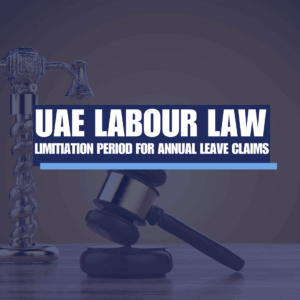Termination of Fixed-Term Employment Contracts under the New Saudi Labor Law
Under the Saudi Labor Law (Royal Decree No. M/51), fixed-term employment contracts are the default, especially for foreign workers. Such a contract automatically ends upon the expiration of the agreed duration without the need for termination (Art. 74, para. 1). If no duration is specified, the law imposes a one-year term for foreign workers, starting from the date of employment (Art. 37). In practice, contracts with expatriates are almost exclusively fixed-term because the law mandates a fixed-term written agreement for foreign workers. In contrast, Saudi nationals are also commonly employed under indefinite contracts, which may, after repeated extensions, be treated as indefinite even if initially fixed-term (Art. 55).
As of February 2025, the Saudi Ministry of Labor has amended the law, focusing particularly on the early termination of fixed-term contracts. A significant change is the introduction of a general right to terminate for employees, marking a shift from previous practices in Saudi contract law.
I. Previous Legal Situation: Contractual Commitment and Risk of Compensation
Under the previous version of the Labor Law, particularly Art. 74, Art. 80, and Art. 77, the principle was that a fixed-term contract could only be terminated prematurely under exceptional circumstances. Ordinary termination was only allowed if explicitly stated in the contract. Otherwise, an employee could only terminate for a valid reason under Art. 81, such as contract violations or health risks caused by the employer.
If an employee left the job without a valid termination, the employer had a right to claim damages under Art. 77. This was either based on a contractual lump sum or, if not agreed upon, the calculated compensation for the remaining duration of the contract. If the employer terminated the contract outside of the reasons listed in Art. 80, they were also liable for damages. This created a high degree of contractual binding and significant financial risks for any premature termination.
II. New Legal Regulation: 30-Day Notice Termination Right
With the amendment of Art. 74, para. 4 and 5, a general right to ordinary termination was introduced, which explicitly applies to fixed-term contracts. Under this new rule, the employee can resign from the employment relationship with a 30-day notice, without the need to provide a specific reason. The notice period and written form are the only requirements, and claims for damages are excluded.
This change represents a fundamental shift in the legal framework. Employees can now leave their position flexibly, regardless of the original contract end date, without the risk of compensation claims. This particularly increases job mobility for foreign professionals and is seen as a step towards aligning Saudi labor law with international standards.
III. Employer’s Reaction and Available Options
However, the new law is not entirely in favor of employees. It grants employers a transitional mechanism: they can apply to delay the termination by up to 60 days after receiving the termination notice, provided they present legitimate business reasons. This application must be submitted in writing and adequately justified. This provision ensures that employers have time to manage staffing transitions, such as finding replacements or completing handover processes.
IV. Practical Implications and Recommendations for Companies
The reform primarily impacts HR departments and management teams reliant on fixed-term employment contracts. In practice, it is expected that fixed-term contracts will no longer offer the same level of planning security as before. Companies should consider adjusting their contract templates, especially concerning repayment clauses for training or relocation expenses, to protect themselves in case of early termination. Internal processes, such as onboarding and knowledge transfer, should also be structured to better manage sudden employee departures.
The labor law liberalization is part of Saudi Arabia’s broader economic reform strategy (Vision 2030) and is expected to increase employee turnover while enhancing the attractiveness of the labor market. Both expatriates and Saudi nationals will benefit from a more dynamic employment environment with greater career development opportunities.




